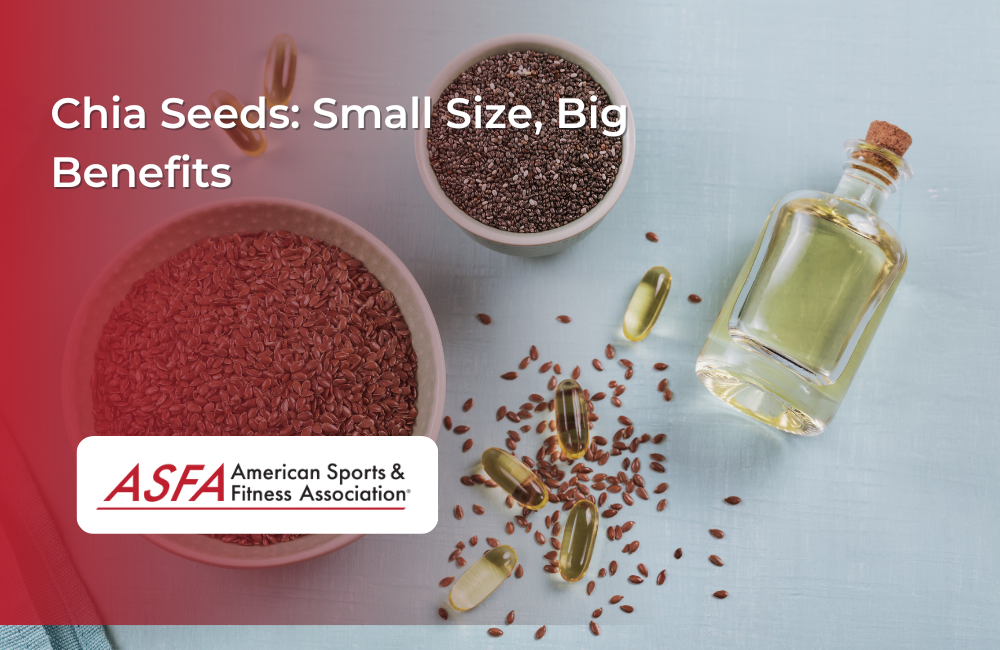Chia seeds are tiny and mighty. They've been used for thousands of years by the Aztecs and Mayans, who ground them into flour to make bread. Today, they're often used by athletes as an energy source because they're packed with protein and omega-3 fatty acids (the good kind). But there's more: they're also gluten-free and have no saturated fat or cholesterol!
Chia seeds come from the desert plant
Chia seeds come from the desert plant Salvia hispanica L. They're a member of the mint family and they're native to Mexico and Guatemala. They're rich in antioxidants and omega-3 fatty acids, but they are also gluten-free, have no saturated fat or cholesterol, and don't even have any sodium.
Chia seeds contain fiber which means you get a lot of fiber in just a small serving of chia seeds! You'll get benefits from both options, but grinding them into meals helps increase their digestibility--a potential problem when consumed whole.
The seeds are tiny but mighty
Chia seeds are a good source of fiber. One serving (about 2 tablespoons) contains 3 grams of fiber, which is about 13 percent of your daily recommended amount. The seeds are tiny but mighty: Ground chia can absorb up to 12 times its weight in water, making it an excellent alternative to eggs as an egg substitute for baking.
Chia has been shown to lower cholesterol levels, reduce inflammation and help control blood sugar levels. It also provides antioxidants that protect cells from damage caused by free radicals--unstable molecules produced by normal bodily processes such as breathing or exercising. In addition to their nutritional benefits, chia seeds have no saturated fat or cholesterol and don't even have any sodium!
Chia is one of my favorite ingredients
Chia seeds have a lot going for them nutritionally. They're a good source of fiber, omega-3 fatty acids, and antioxidants. They also contain calcium and phosphorus (the second most abundant mineral in our bodies), making them an excellent choice if you're looking to up your intake of these key nutrients.
Chia seeds have a low glycemic index (a measure of how much a food affects blood sugar), which means they won't spike your blood sugar levels like other carbs might do--and since they don't contain any sugar or starch, there's no chance of weight gain from eating them either!
They can be used whole as an egg substitute for baking
Chia seeds can be used whole as an egg substitute for baking or ground into a meal for smoothies or even cookies. You'll get benefits from both options, but grinding them into meals helps increase their digestibility--a potential problem when consumed whole.
Whole chia seeds are easier to digest than ground ones, but a lot of people love the taste of chia seeds that have been ground up into more of a powdery consistency (similar to flaxseed). And there's nothing wrong with having both options in your pantry!
Chia seeds are rich in antioxidants and omega-3 fatty acids (the same ones found in fish), which help reduce inflammation throughout the body. They also contain no saturated fat or cholesterol and don't even have any sodium--so they're great additions to anyone's diet!
The seeds absorb water easily
Chia seeds can be used whole or ground into a meal. They absorb water easily so they work well in wet foods like smoothies or puddings or baked goods that need extra moisture like quick breads, muffins, and pancakes. They also make for an easy way to add more fiber to your meals because they stay intact in the digestive tract longer than other types of fiber do.
Chia seeds are gluten-free, have no saturated fat or cholesterol, and don't even have any sodium! These little guys pack other nutritional benefits as well like magnesium, calcium, zinc, and potassium--plus they're rich in antioxidants and omega-3 fatty acids (the kind found in salmon). Plus they're tiny but mighty!
Chia seeds are a great addition to any diet, but they are especially helpful if you're trying to add more fiber to your meals. They absorb water easily so they work well in wet foods like smoothies or puddings or baked goods that need extra moisture like quick breads, muffins, and pancakes. They also make for an easy way to add more fiber to your meals because they stay intact in the digestive tract longer than other types of fiber do.





